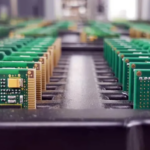In the rapidly advancing domain of electronics manufacturing, it’s not merely about possessing the newest technology or groundbreaking designs. It’s crucial to ensure that the experts behind these innovations have the requisite skills and knowledge. This is where the role of IPC certification becomes paramount.
Advantages of Holding an IPC Certification
- Assurance of Quality: IPC’s standards emerge from the collective wisdom of industry specialists from around the globe. Adherence to these standards guarantees that products align with the highest quality metrics. Professionals with IPC certification are adept at identifying and rectifying deviations from these norms, ensuring product consistency.
- Universal Credibility: Given the global dispersion of electronics manufacturing centers, a universally acknowledged certification becomes indispensable. IPC certification bestows professionals with a mark of trust, facilitating smoother international collaborations.
- Skill Augmentation: IPC certification curricula are exhaustive, spanning from rudimentary electronics notions to avant-garde manufacturing methodologies. This comprehensive approach ensures professionals are primed to tackle the multifaceted challenges of the contemporary electronics sector.
- Minimizing Errors and Waste: In the realm of electronics manufacturing, errors can be exorbitant. Professionals certified by IPC are trained to curtail mistakes, leading to diminished rework and waste. This not only conserves resources and time but also amplifies the profit margins of manufacturing entities.
The Imperative of Ongoing Learning
The electronics sector is in a state of flux, with novel technologies and methods sprouting regularly. An IPC certification isn’t a one-off accomplishment. Professionals are encouraged to renew their certifications at intervals, ensuring they remain in sync with the latest industry norms and methodologies.
Furthermore, as electronics become an integral part of our daily existence, the clamor for top-notch products escalates. Consumers anticipate their gadgets to be dependable, long-lasting, and efficient. Professionals with IPC certification are instrumental in fulfilling these expectations.
In Conclusion
To sum it up, IPC certification transcends being a mere qualification. It’s a reflection of a professional’s dedication to achieving excellence in electronics production. As this sector continues its upward trajectory, the relevance of IPC certification is set to soar.
For individuals aspiring to carve a niche in electronics or elevate their existing skill set, an electronics training course is the optimal pathway. It furnishes the foundational knowledge and tools to confidently navigate the intricate landscape of electronics production.








